Shopify Meetups are free, independently run events hosted by Shopify Experts in cities around the world. These meetups are educational, inspirational, and are an amazing opportunity to connect with local Shopify Partners, merchants, and aspiring entrepreneurs.
This year alone, there have been over 85 official Shopify Meetups. From New Zealand, to South Africa, to the Singapore, Shopify Partners and merchants have been getting together every few months to talk all things commerce.
Today, we’re tackling why you should host a Shopify Meetup, and bringing you advice from four Shopify Experts on how to host a gathering that not only cements you as a leader in your local community, but that has attendees walking away saying “wow.”
Meet the hosts
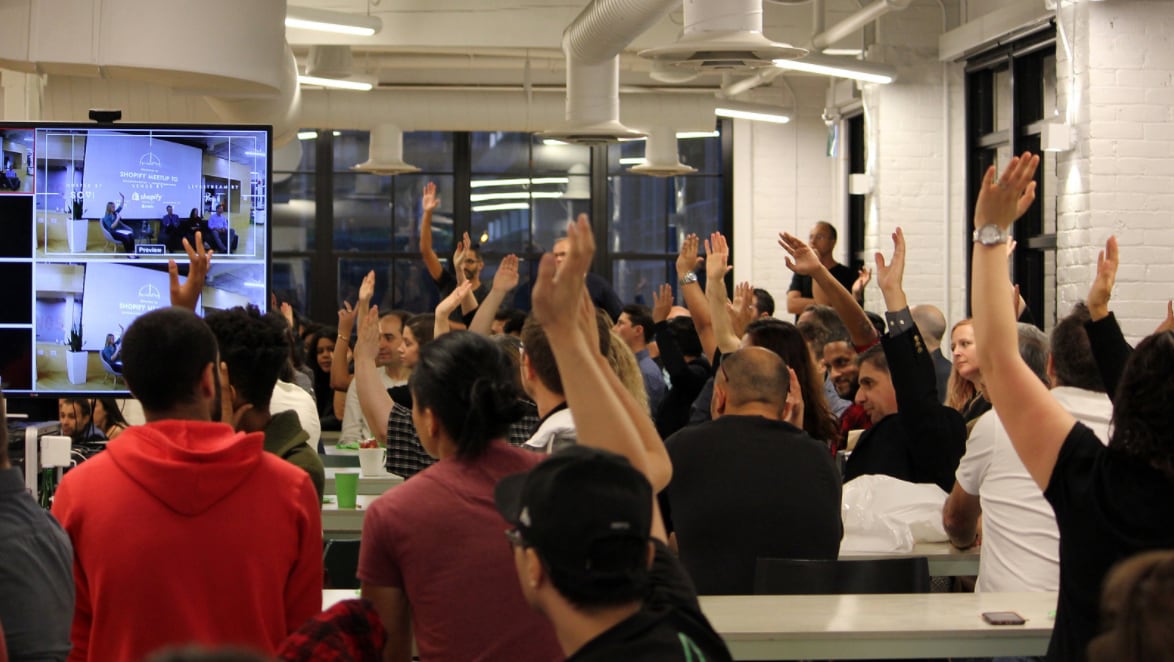
We reached out to four Shopify Meetup hosts around the world to hear more about why they started hosting meetups in their region. In addition, these IRL experts will offer key learnings on how to host a successful meetup.
Anita Schutte, Operations Manager, uAfrica in Cape Town, South Africa
“uAfrica used to be a strategic partner of Shopify for the African territory, and even though that changed at the end of 2016, our relationship with Shopify remains very positive. We want to help new Shopify store owners get started. We've been hosting Meetups since 2014.”
Keith Matthews, Founder, Milk Bottle Labs in Dublin, Ireland
“I’ve spent many miles driving around Ireland selling Shopify — we saw the need to spread the word. The market in Ireland is in its infancy, so we felt that we were well placed to confidently build the community.”
Natasha Murphy, Founder, Nicely Built in Atlanta, USA
“We decided to start our meetup because the majority of websites we build are Shopify. We were interested in not only connecting with potential new clients, but also in talking shop with other area partners.”
Steve Deckert, Co-Founder, Smile.io in Waterloo, Canada
“We were tired of driving to another city to talk ecommerce, and wanted to connect with local entrepreneurs and retailers.”
You might also like: How to Host a Shopify Meetup.
Key Learnings
Each host shared three key learnings they’ve experienced running Shopify Meetups. From that advice we landed on five tips to keep in mind as you plan your next Shopify Meetup or offline event.
Tip 1. Give yourself enough time to organize and market the event.
“Plan in Advance! How successful a meetup is depends largely on how much planning you invest upfront. We start working on each one of our bi-monthly meetups months in advance. Over time, we've developed a checklist to streamline the planning process. Even with a solid game plan, each meetup still takes us eight to 12 hours, on average, to plan.”
We start working on each one of our bi-monthly meetups months in advance. Over time, we've developed a checklist to streamline the planning process. Even with a solid game plan, each meetup still takes us eight to 12 hours, on average, to plan.”
– Natasha, Nicely Built
“We prioritize a more active marketing approach, where we email registrants nine days prior, and two days prior to the meetup, as a reminder about the event — this also helps increase attendance.”
– Anita, uAfrica.com
Stay consistent in your promotion and the attendees will build slowly.
“To get started, simply choose a date three months out, and promote across all social media from the day one. Stay consistent in your promotion and the attendees will build slowly.”
– Keith, Milk Bottle Labs
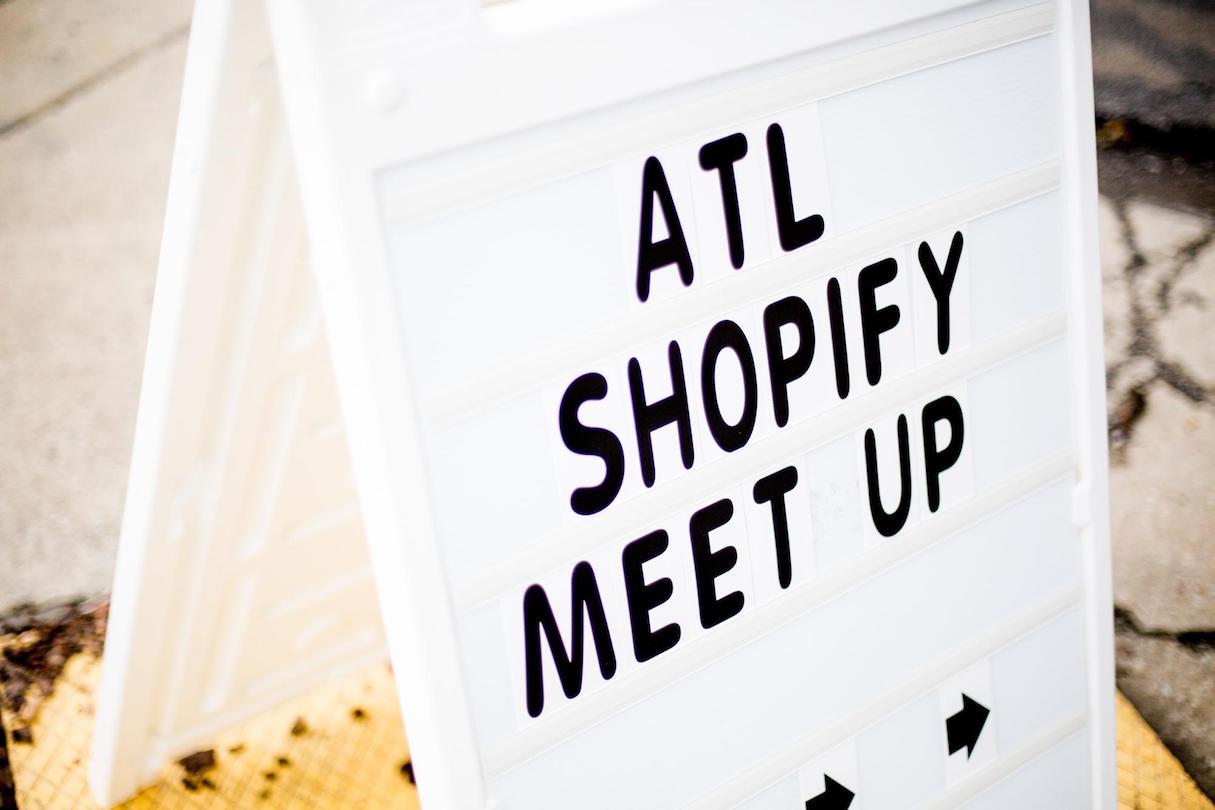
Tip 2. Review all options when it comes to your venue.
“Try to choose a free venue to start with. Venue costs add up, and with some searching and research, a free venue can offer all a paid venue will.”
– Keith, Milk Bottle Labs
“We recently changed venues for one of our meetups, which resulted in an increase in attendees, as the layout of the room could hold more people.”
– Anita, uAfrica.com
"Depending on the size and location of the event, reach out to local restaurants, bars, and music halls that are licensed. They may welcome to business at a free or discounted rate if you cover the alcohol and food sales"
– Steve, Smile.io
Knowing all your dates in advance for the upcoming year will also make planning the other details much easier.
"Rather than finding a venue each time you host a meetup, try to find a space that is willing to let you book an entire year's worth of events all at once in exchange for a lower rate or title sponsorship. Knowing all your dates in advance for the upcoming year will also make planning the other details much easier."
— Natasha, Nicely Built
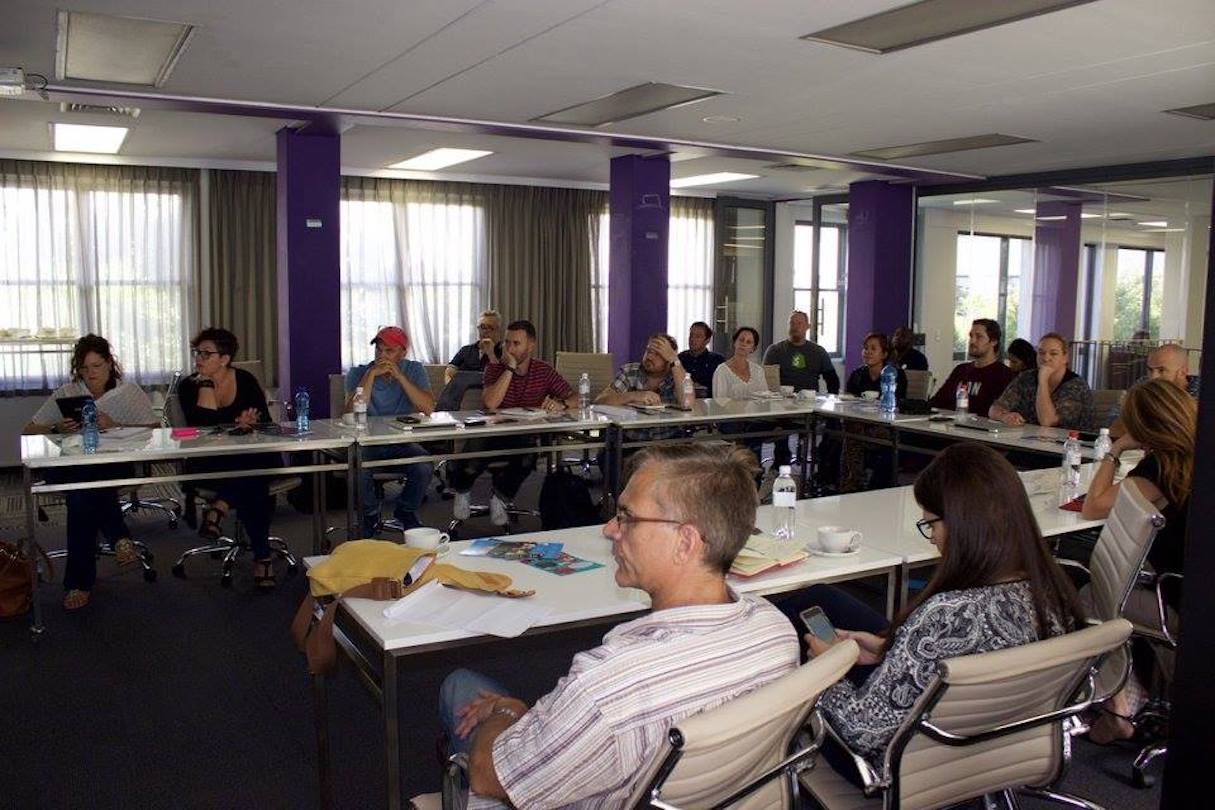
You might also like: The Power of Community: How Nurturing Your Network Can Propel Your Business.
Tip 3. Ensure you’re providing quality content, while leaving time for networking
“Make sure that your presentations are no longer than 30 minutes. Ideally, they would be less than 20 minutes. Think about the length of a TED Talk. Attendees often find the Q&A/discussion period after a presentation the most valuable, so leave more time for this and less time for the actual presentation.”
– Steve, Smile.io
“Keep the agenda simple and address pain points that your customers have shared in the past . For Milk Bottle Labs, we generally mix up our events between the following main topics — Shopify Merchant experiences, Shopify Apps, Shopify updates, and Shopify POS.”
. For Milk Bottle Labs, we generally mix up our events between the following main topics — Shopify Merchant experiences, Shopify Apps, Shopify updates, and Shopify POS.”
– Keith, Milk Bottle Labs
Leave enough time after any presentations for the attendees to network and mingle, especially if it's one of your first few meetups.
“Leave enough time after any presentations for the attendees to network and mingle, especially if it's one of your first few meetups. You're trying to build a community here, so the more time people have to build relationships the stronger your community network will be — and the more consistent turn out you'll have.”
– Steve, Smile.io
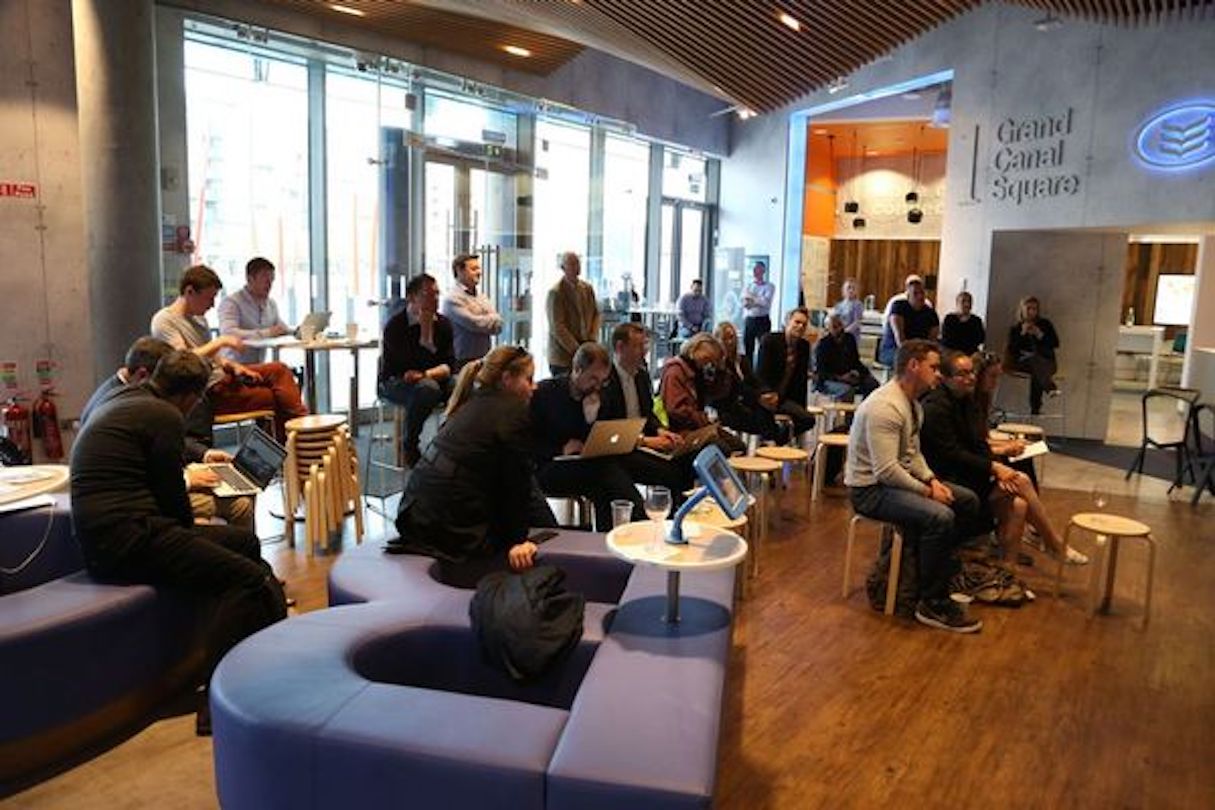
Tip 4. Leverage the Shopify Network
“Lean on Shopify! Shopify has an endless supply of content to share with attendees, as well as some extremely knowledgable people who can give you tips and advice. The Shopify ecosystem is full of partners who would love to present at your meetup. And there are several successful meetups you can look to for inspiration and ideas on how to run your own.”
— Natasha, Nicely Built
The Shopify ecosystem is full of partners who would love to present at your meetup.
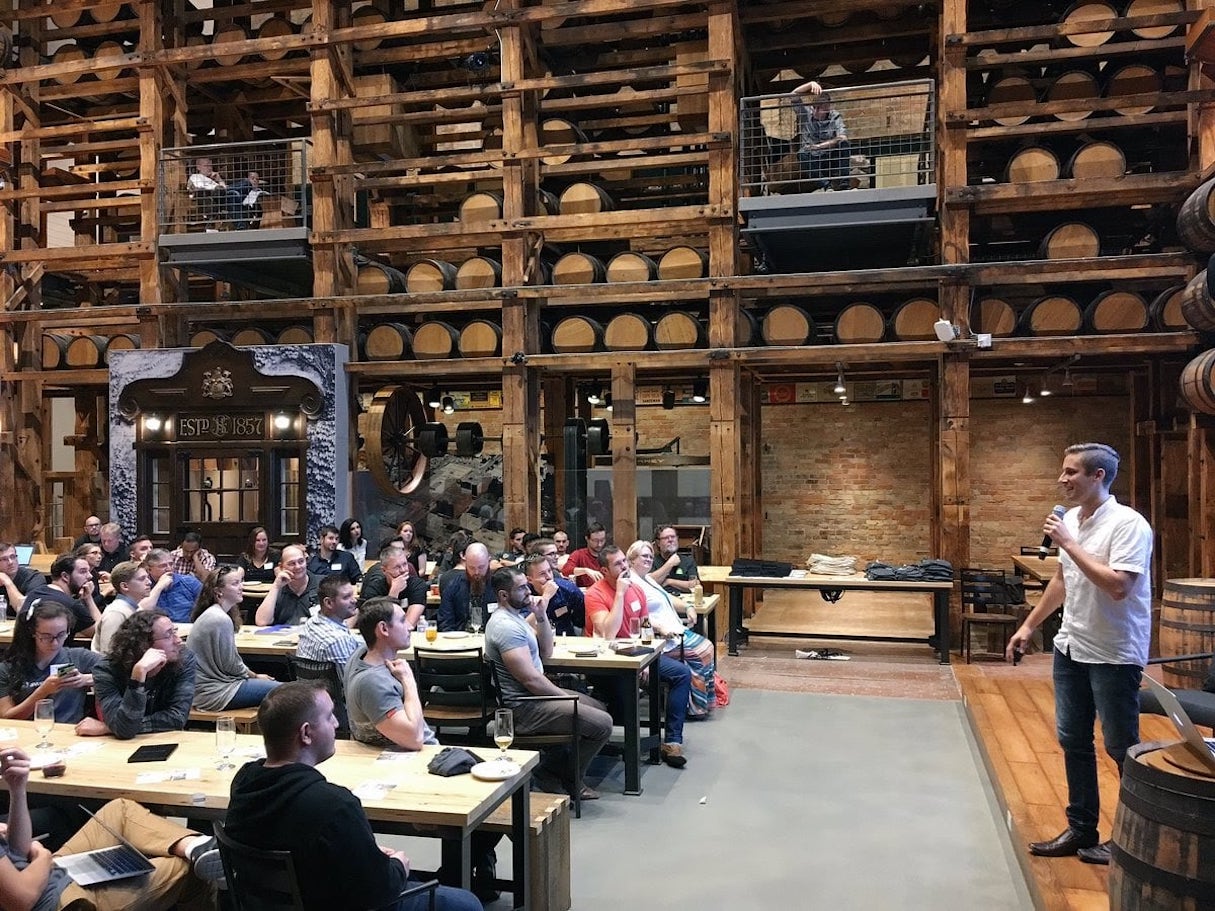
You might also like: How Accessing the Partner Ecosystem Can Help You Grow Your Business.
Tip 5. Foster relationships with attendees pre, during, and post meetup.
“Always follow up after the meetup to share presentations, photos, notes, and most importantly: collect feedback. Ask what the attendees would change or improve upon. This could be via a survey, or something as simple as "respond to this email with any feedback." If there is something consistently mentioned, it's something worth looking into. You also want to the community to feel like they're a part of creating these meetups.”
– Steve, Smile.io
The week after the meetup, we send out an email as a 'thanks for attending,' which includes contact information for all the companies we partner with during each meetup.
“The week after the meetup, we send out an email as a 'thanks for attending,' which includes contact information for all the companies we partner with during each meetup.”
– Anita, uAfrica.com
“Be good to your collaborators. Whether it's a speaker, event space point of contact, or volunteer, being polite and nice goes a long way in building solid relationships. We've found this to be especially true as our meetup has grown and matured.”
– Natasha, Nicely Built

Connect with your community
Meetups are a great way to connect with your local entrepreneurial community, and learn from one another. Keep in mind that your community is unique and you will need to tailor these tips to their needs.
Read more
- How to Generate Leads for Your Business Using Content
- 7 Content Ideas That Will Drive Revenue for Your Agency
- Building a Brand: How to Create a Lasting Impression for Your Clients
- The Smart Content Marketing Funnel - A Guide on Matching Content Types to the Customer Buying Stage
- 6 Email Marketing Campaign Ideas to Stand Out in a Crowded Inbox
- Your Network is Your Net Worth: The Basics of Networking as a Shopify Partner
- Teaching Code: A Getting Started Guide
- How to build a Shopify POS Pro demo store
- Product Management Basics: Identifying Customer Pain Points and Validating Ideas
- Why Building Infographics Should be Part of Your Content Marketing Strategy

